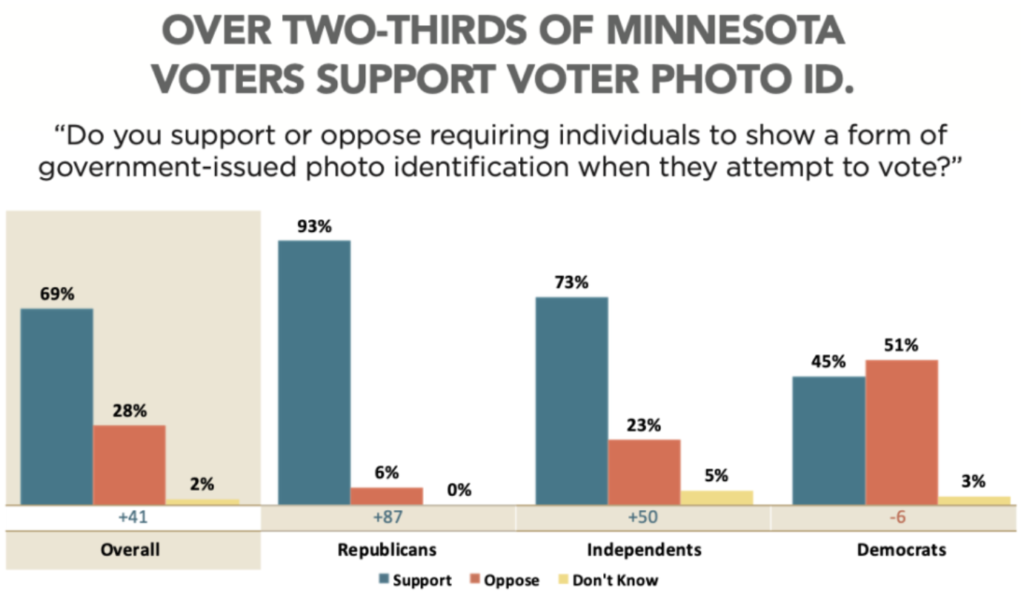Fixing elections
Despite voting it down in 2012, Minnesotans support Voter ID.
As America fights a bipolar battle over election fraud — from rioters storming the Capitol this past winter to Congressional Democrats scurrying to kill voter ID requirements this spring — Minnesotans are grappling with their own conflicting feelings on the matter.
Only 35 percent of Republicans feel confident about state elections going forward, compared to 95 percent of Democrats and 69 percent of independents, according to the latest Thinking Minnesota Poll. But a full 69 percent of respondents, including 73 percent of independents, want people to show a photo ID before entering the voting booth.
It’s an interesting contrast as state residents prepare for next year’s midterm elections, when Gov. Tim Walz will be running for a second term and Republicans nationally will be desperate to take back the U.S. House of Representatives.
Election reform, however, is unlikely at any level.
In Washington, HR 1, which would eliminate the need for voter ID nationwide, passed the House earlier this year, 220-210. But the Democrats lack a filibuster-proof majority in the Senate.
In the Minnesota Legislature, the Republican-led Senate favors voter ID laws, while the Democrats — the party of Walz and in control of the House — want to eliminate vouching restrictions, register 16 and 17-year-olds, and enhance public financing options.
This almost certainly means gridlock and the death of bills proposed by both sides, despite bipartisan support among voters for an ID law. The state almost got one, about a decade ago, but the referendum failed.
Why? There are two reasons, one big and one small.
The small one is, it was proposed as a constitutional amendment. Some Minnesotans simply didn’t like the idea of changing the state Constitution. Amendments are normally reserved for larger issues that can’t be handled with statutory changes.
The bigger reason is its tie to the marriage amendment. Voter ID fell victim to a well-funded and effective “Vote no” campaign on another issue altogether. And in the process, Republicans lost majorities in both the House and Senate.
